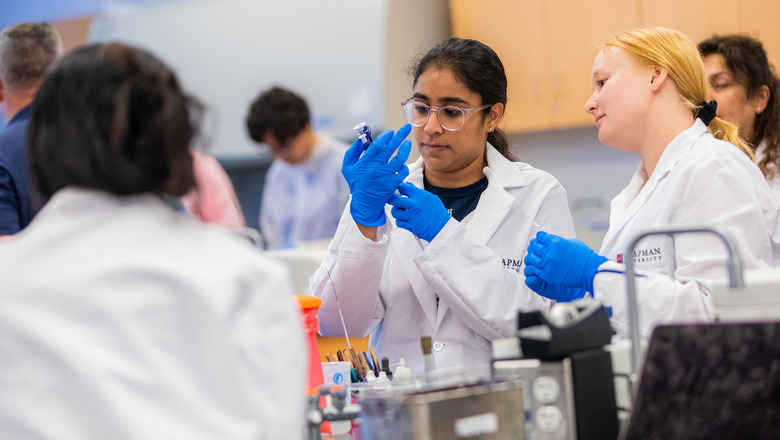- Follow
»Pre-Health 4-Year Plan
- Freshman Year
- Sophomore Year
- Junior & Senior Years
-
- Pay attention to what you enjoy and what you are good at.
- Visit the explorehealthcareers.org website and gather information on health-care professions that sound interesting to you.
- Think about what degree program you might enjoy.
- Begin pre-professional core science courses.
- Begin professional observations and job-shadowing experiences, if your schedule permits.
- Establish good study skills and focus on academics.
- Take advantage of academic resources available in the Tutoring, Testing and Learning Center.
- Get involved in a study group and surround yourself with people that are serious about their studies.
- Get to know faculty - they are a great resource for major/career information and for future references and letters of recommendation.
- Meet new people and enjoy what college has to offer.
In addition to the points above, make sure to meet with your Pre-Health Advisor each semester to discuss your current academics, activities, and timeline goals.
-
- Attend faculty research symposia and consider doing research with a faculty member.
- Commit to a major that will help you prepare for a career in the health profession and choose a faculty advisor that can help you reach your goals.
- Continue health-related volunteer opportunities and start to engage in co- and/or extra-curricular activities that involve community service and develop desirable personality traits.
- Research health professional schools you may want to apply to and learn about specific requirements.
- Work on study habits and time-management skills that will allow you to improve your grades, or keep your grades at a high level in increasingly rigorous courses.
- Volunteer as a tutor for freshman level science classes. Not only will this allow you to review foundational material but you will learn it in deeper ways.
- Continue - involvement in school clubs.
- December through February apply for a summer research internship with various organizations such as the National Institute of Health (NIH) or the American Heart Association.
In addition to the points above, make sure to meet with your Pre-Health Advisor each semester to discuss your current academics, activities, and timeline goals.
-
Now is the time to decide when you’re applying to your health professions program. If you are waiting to apply in your senior year, continue with your clinical work, research, community service, and extracurricular activities. No matter which year you apply, you should have a complete application ready to be most competitive.
Complete these activities in the year in which you are applying.
- Get involved in a faculty sponsored research project.
- Request application materials from the health professional schools to which you plan to apply. Visit or talk with admissions representatives at these schools.
- Register for pre-professional exams (i.e. MCAT, DAT, OAT, GRE, PCAT, etc.)
- Complete pre-professional exam.
- Early summer: Complete primary application (provided through standardized service where application information is dispersed to schools of choice.
- Late summer: Complete secondary applications, send letters of reference.
- Continue and/or expand your involvement with student clubs/organizations and community activities/volunteer programs. Think about becoming an officer in a student club.
- Begin to write your personal statement.
- Refine your interviewing skills and set up a mock interview(s).
- Early fall term/winter term: Go to interviews.
Contact your Pre-Health Advisor
Chapman's dedicated Pre-Health Advisor is Randy Zuniga. Randy is available to all
Chapman students and alumni interested in learning more about medical and professional
school.
Email: prehealth@chapman.edu
